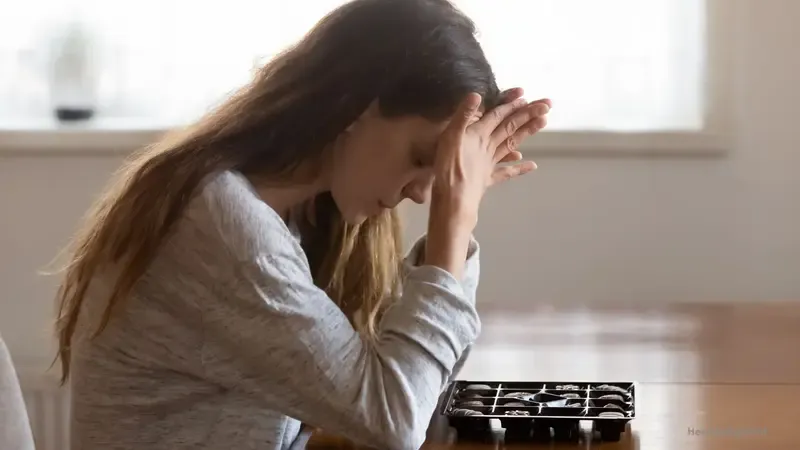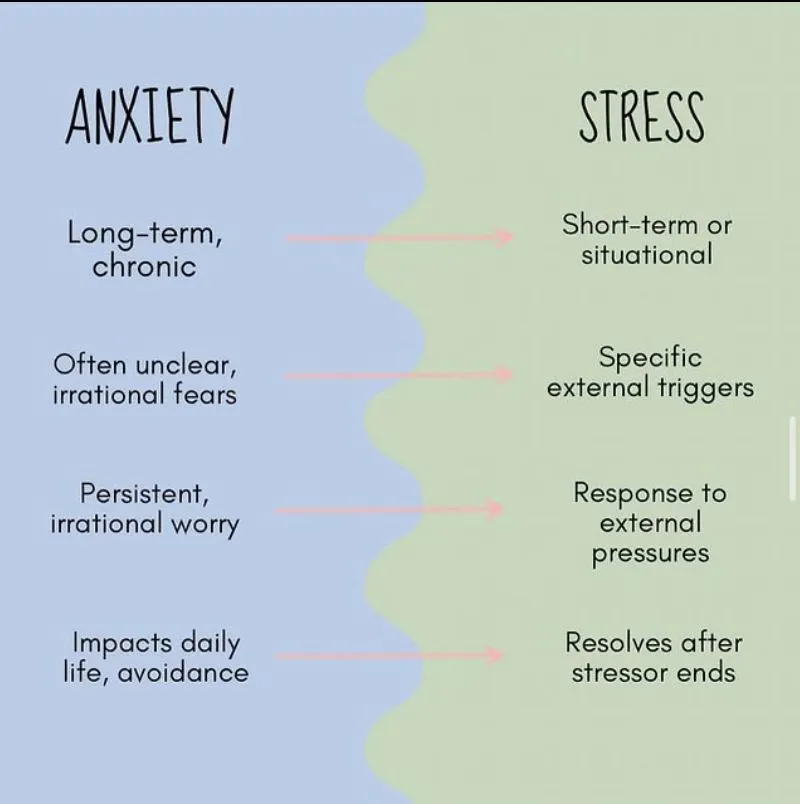Not every anxious feeling needs a therapy session. Sometimes it's just a nervous buzz before a presentation or that weird sense of 'something's off' for no clear reason. Research shows that simple techniques like 4-4-4 breathing, movement, and basic self-care can effectively manage everyday anxiety without overwhelming interventions. Learn practical tools for those in-between moments.
When Anxiety Isn't a Crisis—But Still Matters
Let's be honest: anxiety gets a lot of attention these days, and for good reason. But not every anxious feeling is a full-blown crisis requiring immediate intervention. Sometimes it's just a nervous buzz in your chest before a presentation, a restless night before a big decision, or that weird sense of 'something's off' for no obvious reason. That's everyday anxiety—and even if it's not debilitating, it still matters and deserves your attention. Research from NHS Scotland shows that simple breathing and relaxation techniques can effectively manage stress and anxiety in daily situations, helping you respond to life's ordinary pressures without feeling overwhelmed or losing your sense of balance.
The Science Behind Quick Anxiety Relief
When you experience everyday anxiety, your nervous system shifts into a mild state of alertness, releasing stress hormones and increasing your heart rate and breathing. The good news is that you can consciously activate your parasympathetic nervous system—your body's 'rest and digest' mode—through specific techniques. Studies published in PMC medical journals show that controlled breathing exercises lasting just 5 minutes can effectively reduce stress and anxiety by regulating the balance of oxygen and carbon dioxide in your body. These techniques work because they send direct signals to your brain that you're safe, helping to calm both your mind and physical symptoms.
Breathe Like You Mean It: Quick Breathing Techniques
4-4-6 Breathing for Immediate Calm
This isn't about half-hearted sighs—it's about intentional breathing that your nervous system actually notices. Inhale slowly through your nose for 4 counts, hold gently for 4 counts, then exhale through your mouth for 6 counts. The longer exhale activates your parasympathetic nervous system more effectively than the inhale. Research from the British Heart Foundation shows that even a few minutes of this pattern can reduce heart rate and promote relaxation.
Box Breathing for Mental Reset
Also called 4-4-4-4 breathing, this technique creates a 'box' pattern: inhale for 4, hold for 4, exhale for 4, hold empty for 4. Studies show this method helps regulate both your nervous system and your focus, making it perfect when your mind feels like it has 'a dozen tabs open and one of them is playing music you can't find.' Practice this anywhere—at your desk, in your car, or before entering a stressful situation.
Get Out of Your Head and Into Your Body
Movement as Anxiety Medicine
Anxiety loves overthinking, but movement interrupts this pattern by shifting your focus to physical sensations. Take a walk around the block, stretch your arms overhead, shake out your hands and arms, or do five jumping jacks. Research from Michigan Medicine shows that even brief physical movement helps reset your nervous system and can provide immediate relief from anxious thoughts. The key is engaging your body to give your mind a break from worry loops.
The Power of Gentle Movement
You don't need intense exercise to get anxiety relief. Studies show that gentle movements like stretching, walking, or even organizing a small space can help discharge nervous energy. The goal isn't to exhaust yourself but to remind your body that you're safe and grounded in the present moment rather than caught up in anxious thoughts about the future.
Basic Needs: The Foundation of Anxiety Management
Fuel Your Brain Properly
Minor anxiety can feel much bigger when your basic needs are ignored. Low blood sugar, dehydration, and caffeine crashes can all amplify anxious feelings. Have a balanced snack that includes protein, drink a glass of water, and consider whether you've had too much caffeine or not enough food. Sometimes what feels like anxiety is actually your body asking for basic care.
Digital Boundaries for Mental Space
Constant information input can contribute to that 'something's off' feeling. Log off social media, close unnecessary browser tabs, or put your phone in another room for a while.
Taking breaks from digital stimulation gives your nervous system a chance to recalibrate and can significantly reduce background anxiety that you might not even realize you're carrying.
The Social Element: Connection as Medicine
Sometimes saying 'I'm feeling a little off today' to someone who gets it is enough to take the edge off anxious feelings. You don't need to explain everything or have a deep conversation about your anxiety—just being heard and acknowledged can provide relief. Research consistently shows that social support reduces stress hormones and activates the release of oxytocin, which naturally calms anxiety. This might mean texting a friend, calling a family member, or even just having a brief genuine conversation with a colleague. The key is connection, not necessarily problem-solving.
Permission to Not Fix Everything Instantly
Accepting the Temporary Nature of Anxiety
Some days you just feel a little off, and that's completely okay. You don't need to solve every anxious feeling or understand exactly why you're feeling uneasy.
Sometimes anxiety is just anxiety—temporary, manageable, and part of being human. The goal is to move through it with care rather than fighting it or demanding immediate resolution.
Compassionate Self-Response
Don't shame yourself for feeling anxious. Feeling nervous, worried, or 'off' doesn't mean you're weak, dramatic, or doing life wrong—it means you're human. Welcome to the club. Self-compassion actually reduces anxiety more effectively than self-criticism, so treat yourself with the same kindness you'd offer a good friend having a tough day.
Finding Lightness: The Role of Humor and Joy
Laughter doesn't erase anxiety, but it can soften its grip. Watch a ridiculous video, text your friend that one inside joke, or recall a funny memory. Research shows that laughter triggers the release of endorphins and reduces stress hormones, providing natural anxiety relief. The goal isn't to force positivity or pretend you're not anxious—it's to create space for multiple emotions to coexist. You can feel anxious and still find moments of lightness, and often that combination helps anxiety pass more quickly.
Building Your Everyday Anxiety Toolkit
Managing everyday anxiety isn't about having one perfect technique—it's about having several simple tools you can use depending on the situation. Keep it practical: identify 2-3 breathing techniques that work for you, know what types of movement help you feel grounded, and have a few people you can reach out to when you need connection. The goal isn't to never feel anxious—that would be neither realistic nor healthy. The goal is to get better at responding when anxiety shows up, so those in-between moments pass a little faster and feel a little more manageable. That alone is significant progress and a form of self-care that builds resilience over time.





